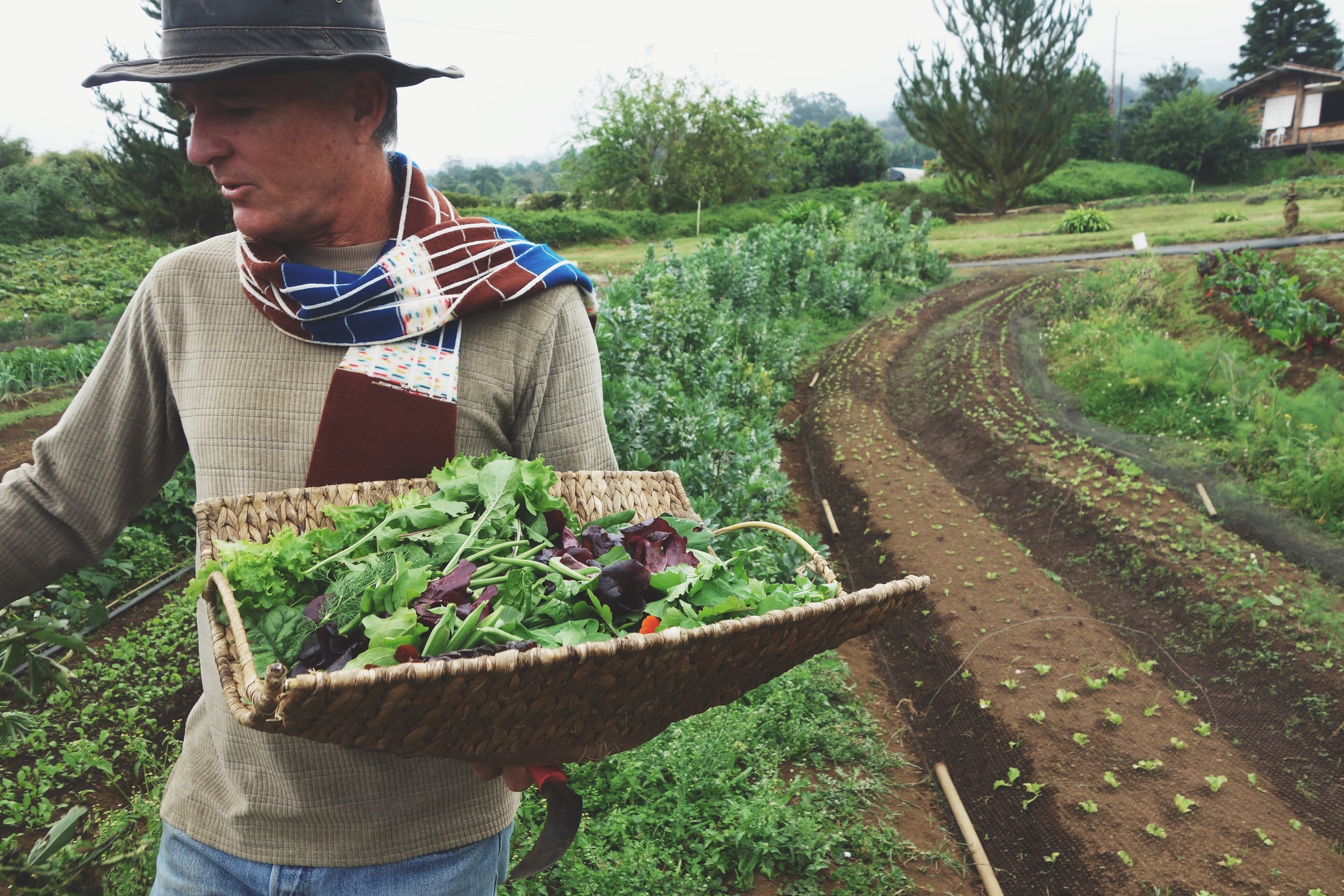Inspiration: Video, Of Land and Sea | Patience and Preservation from Terasu.
Farm-to-fork -- the ever trendy, catch-all term for food that was cultivated by hand on a homey little farm, and transported directly to your plate for happy, guilt-free consumption. Don't get me wrong--I love a good farm-to-fork restaurant as much as the next hip 20-something. But let's be honest here: what do you picture when you hear farm-to-fork?
Admittedly, I picture manageably-sized rows of fresh greens, of carrots, of tomatoes, of peppers. I picture a wise, able man in a worn-in flannel kneeling next to his bounty as he scoops purple heirloom potatoes out of the cold, promising soil. I picture a brown woven basket filled to the brim with Mother Nature's gifts, ready for transport from the farm straight to a white, bright, minimalistic kitchen to be quaintly prepared by a true artisan, ethical chef, and served to me within the walls of an earthy-toned, uber-trendy, self-aware restaurant.
That sounds great and all, but unless you are a vegetarian or vegan (which most estimates say make up 5% or less of Americans), you're not thinking about the same process that had to occur to put that 100% grass fed beef, or organic, free range chicken on your plate right beside those farm-fresh vegetables. To ignore this aspect of the farm-to-fork experience, doesn't do justice to the farm or the fork.
This video from Terasu beautifully shows the process by which Brandon D'Imperio converts pigs to prosciutto at his Washington ranch--a true farm-to-fork, or pig-to-plate, experience. The video does not shy away from the harsh reality that the pig must be killed, nor does it vilify it, but rather, it invites the viewer to confront that reality. The reality that even if the pork on your plate was ethically raised, make no mistake, life was lost.
In most cases, it seems we either condemn the killing of animals for food, or we choose to ignore it. Many people are horrified at the thought of killing an animal, and yet they eat meat on a daily basis. Herein lies the tragedy. We are so far removed from our food that, somehow, we are able to eat meat and not once consider the life that was lost in order to bring it to us. In this blindness, the relationship between man and animal is forgotten.
Watching the video was a bittersweet experience for me--as meat consumption probably should be. Though I don't think eating meat is unethical, it is still a sad thought that a breathing, sentient being is slain on my behalf. Sad, but surely beautiful. In the video, Brandon tells how his relationship with food has evolved:
In the beginning for me, food was more about flavor and nourishment, but through the times and experiences I’ve had it’s grown into being more about relationships, love, and patience.
Because he understands everything that goes into putting a piece of prosciutto on his plate--caring for the pig, killing the pig, cleaning the meat, salting, waiting, the patience, the care--he is able to fully appreciate it. He's able to appreciate the relationship between man and animal, the love and care that can go into food preparation, and the animal itself. After all, when all "pork" is to you is a tasty piece of meat that has magically been prepared and served to you neatly on a plate, can you really appreciate the animal from which it came?
In some sense, life on earth exists in clear, decipherable ways. Plants rely on microorganisms to grow, plants convert sunlight into energy, animals eat plants to obtain this energy, animals eat each other, and of course, life after death persists in the form of new life.
And so it goes, humans play our part too. But when we ourselves do not kill an animal, when we don't even think about the fact that an animal was killed so that we could eat it, our role in this cycle grows undecipherable, and we lose the closeness that we once shared with our food and with the earth. And only by once again deciphering our role in that cycle, can our food systems begin to be repaired and our relationship with the natural world be restored.
Do you think about the relationship between man and animal when you eat meat? Do you refuse to eat meat? Or do you choose not to think about it? Let me know your take in the comments!



